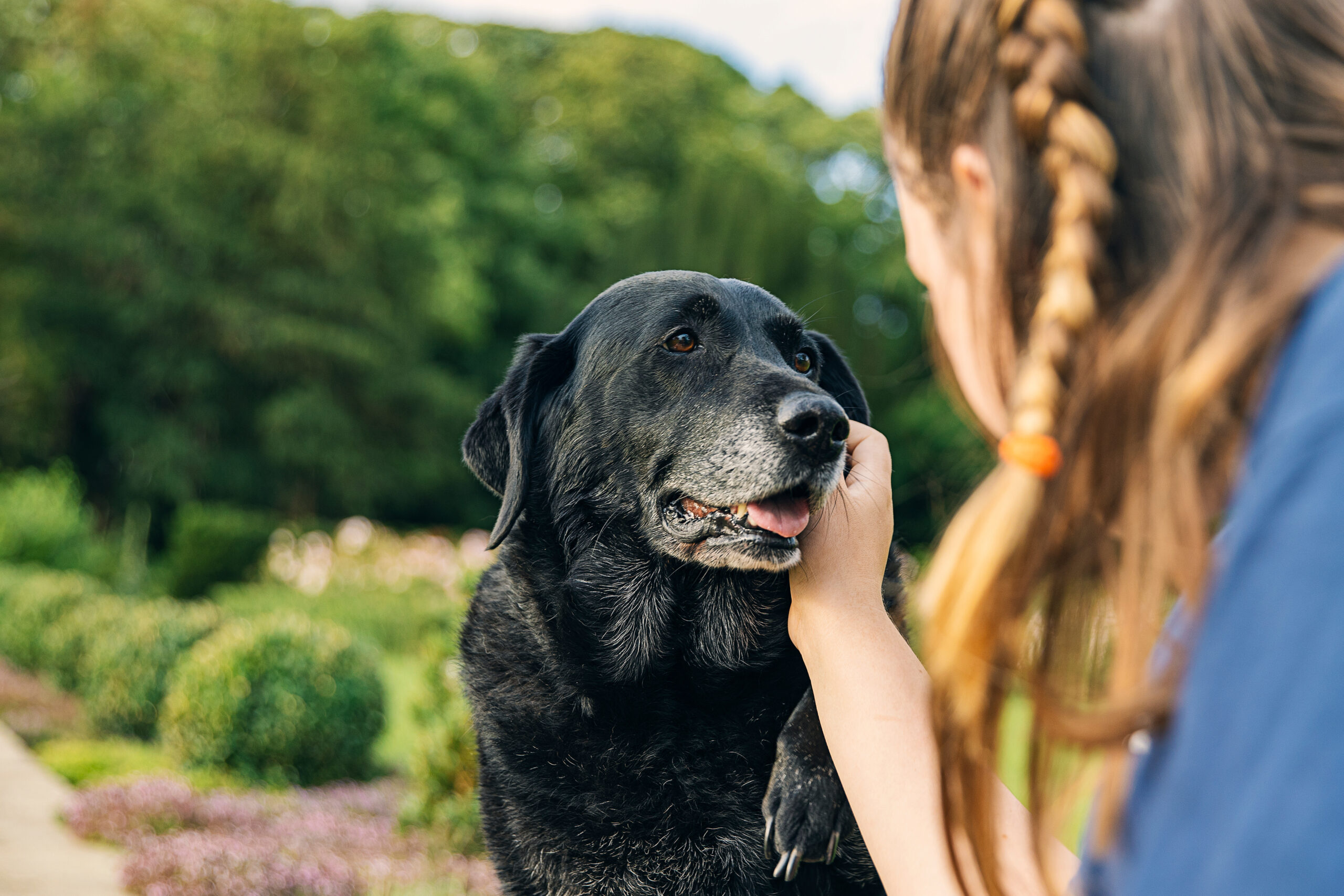
Senior Wellness
It can be hard to admit when we see the signs of old age in our animal companions, but the fact is that most dogs are considered seniors when they hit seven, cats around seven. Pets age much more rapidly than humans, which means diseases and illness progress quicker as well.
To ensure that your pet has the longest, healthiest, most comfortable life possible, Family Vet Lake St Louis encourages you to bring your senior pet for exams and blood tests twice each year. This way, we can track how your pet is aging, and we’ll be more likely to catch any developing diseases before they’re big problems.
Blood tests are one of the most important parts of a senior exam. These blood screenings—often referred to as a “senior panel”— monitor red and white blood cell counts and reveal how well the kidney, liver, pancreas, and thyroid are functioning. Your vet may recommend a chest x-ray to ensure that the heart is a normal size and that there are no masses in the lungs.
Periodontal disease is always a threat to our pets’ health and comfort, and it’s particularly tough on older pets. That’s why a dental exam is always part of any senior pet screening as well.
Alongside these essential screenings, we now provide fast scan ultrasounds for senior pets. These non-invasive scans help detect a range of issues that may not be apparent in standard examinations or other diagnostic screenings.
Fast scans can identify:
- Early Cancer: Detecting subtle signs of tumors enables early intervention and improves treatment outcomes.
- Cardiovascular Abnormalities: Initial screening for heart issues, which may necessitate additional diagnostics such as an echocardiogram.
- Organ Abnormalities: Identifying abnormalities that may go unnoticed in standard examinations.
- Gastrointestinal Disorders: Screening for gastrointestinal issues and abnormalities.
These fast scans reduce stress for pets and offer detailed insights, allowing our veterinary team to create personalized treatment plans tailored to each pet’s needs. They also provide added peace of mind for our clients, knowing that they are proactively managing their pet’s health and well-being by detecting potential issues at their earliest stages, which can significantly improve the chances of successful treatment.
Finally, make sure to let your vet know about any behavior changes in your pet. Once dogs and cat get to the geriatric stage, monitoring for signs of cognitive dysfunction—such as losing housebreaking, getting lost or wandering aimlessly—is very important.
We’re passionate about keeping your pet healthy for years to come
To schedule a wellness exam for your senior pet, call us at 636-400-7387.
